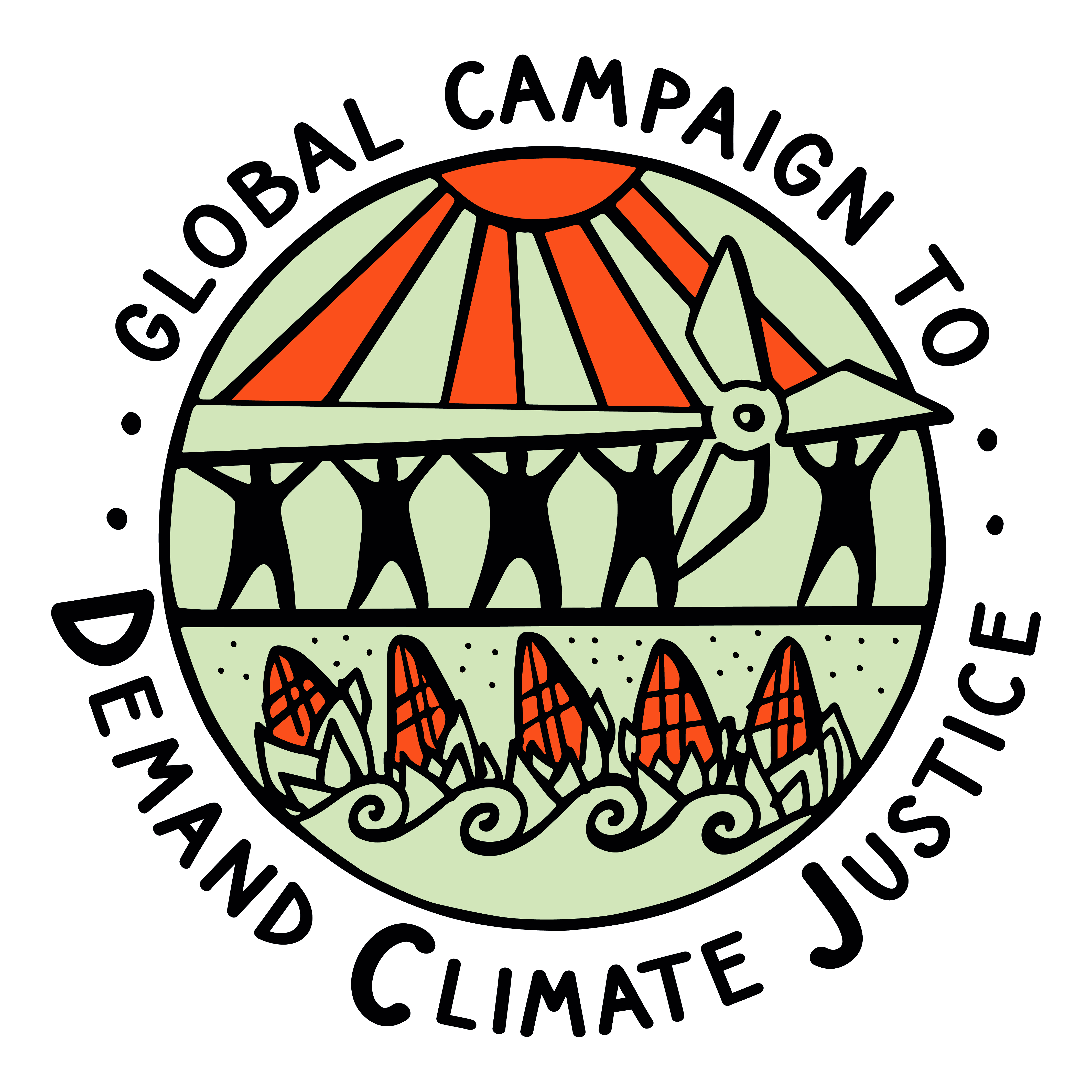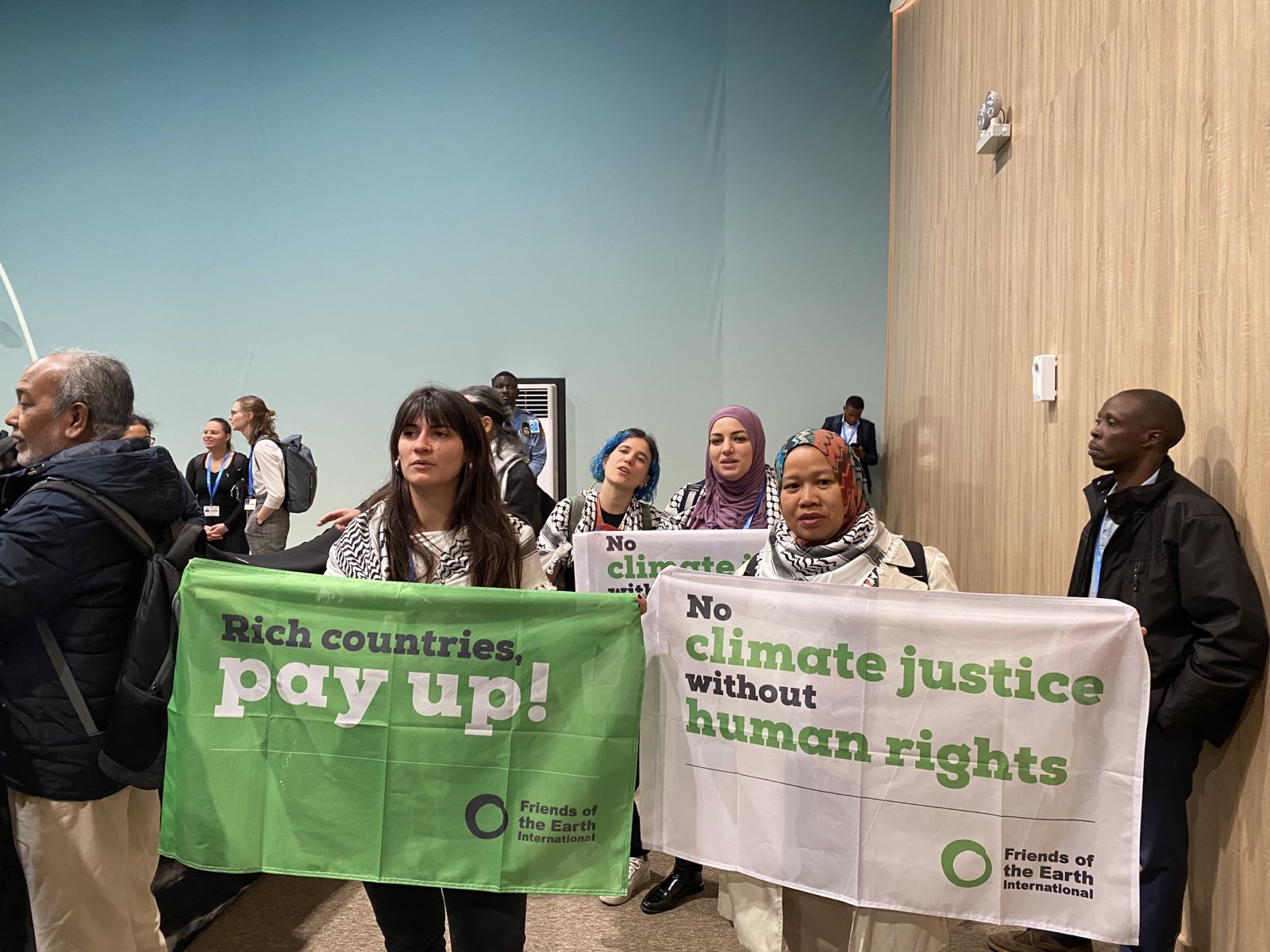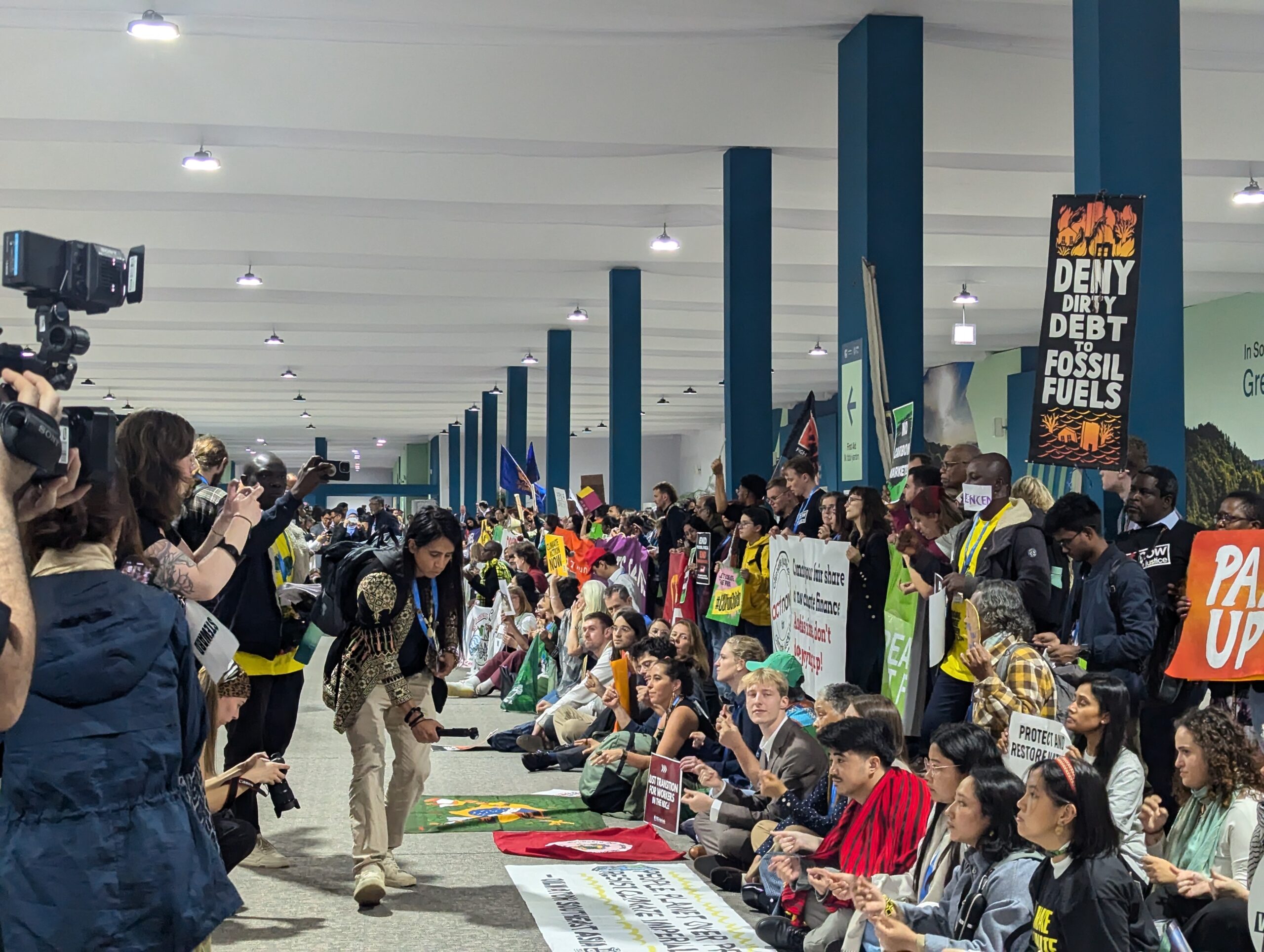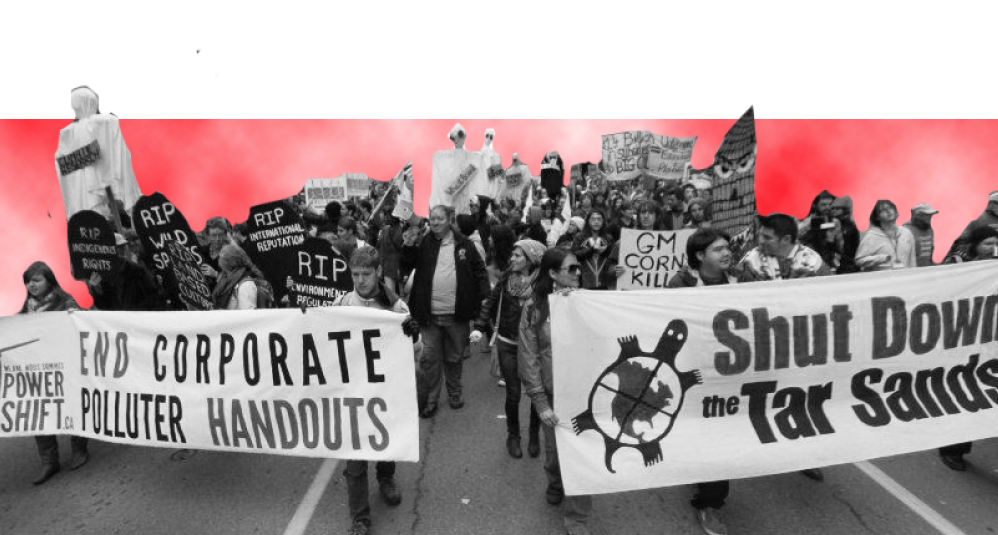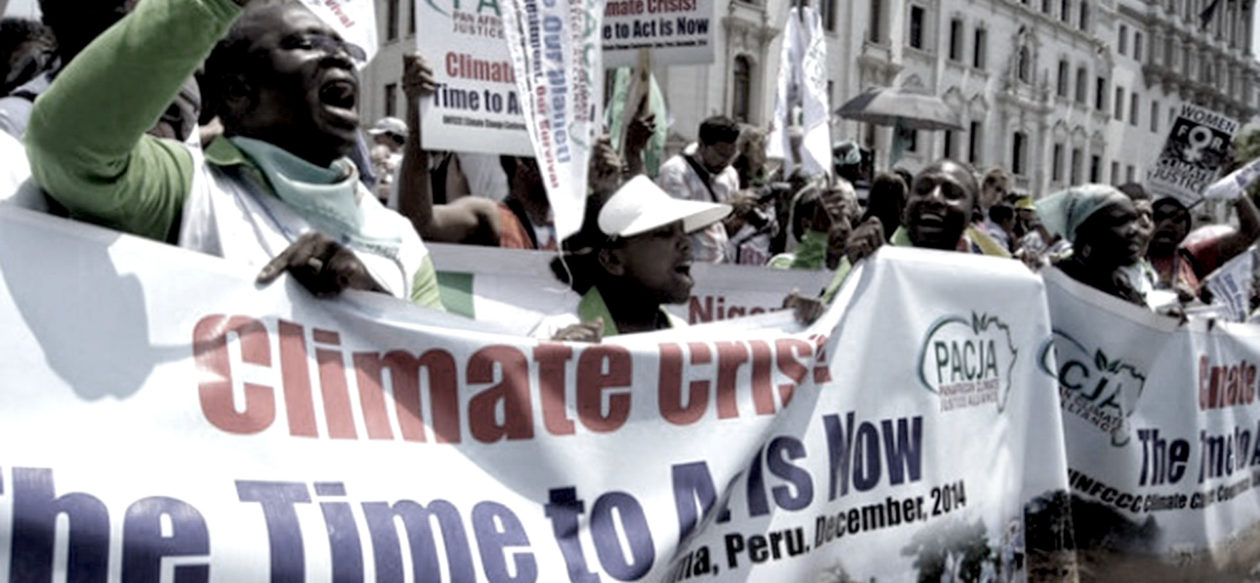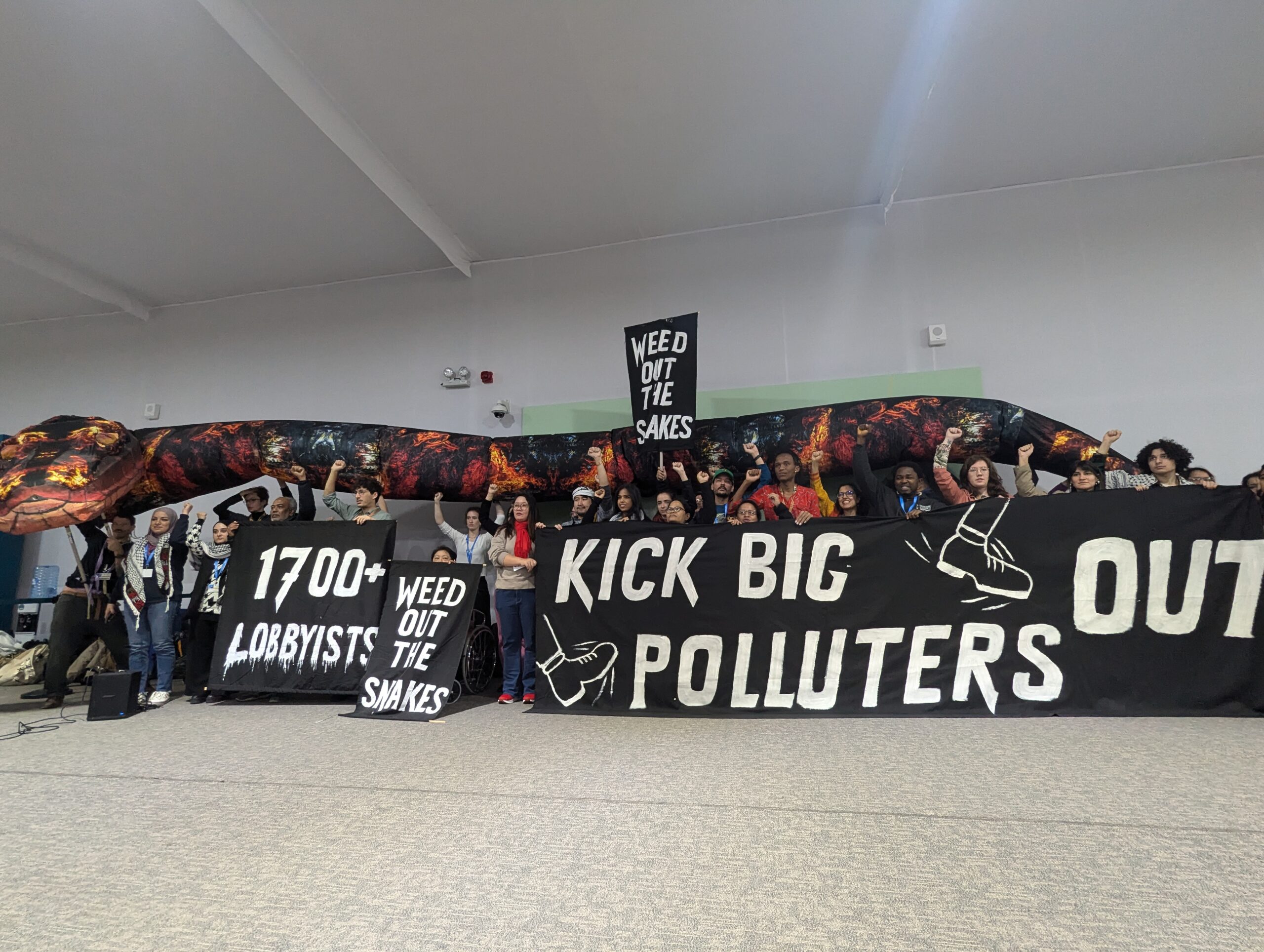Intervention: Deputy Executive Secretary
Deputy Executive Secretary
I am Rachitaa Gupta from the Global Campaign to Demand Climate Justice. I voluntarily disclose that I have no ties to the fossil fuel industry or other emission intensive industries and no conflict of interest and invite others to also disclose the same as they speak. We want to highlight the new report that has just come out that shows there are nearly 1800 fossil fuel lobbyists at this COP and we know when they come here it is only to influence and prioritise their profit rather than people’s interests. We cannot ignore the contrast between shrinking of meaningful space for rightsholder constituencies on one hand, and the vastly increasing power and influence of the polluting interests like the fossil fuel lobbyists over this process on the other hand. For us, enhancing observer engagement requires ensuring that that engagement does not come at the cost of introducing conflicting interests that risk the integrity of the very UNFCCC objectives and process, and that displace the lived experience and expertise of rights holders. We call on your support to convene a public, formal way for observers to engage in dedicated, constructive, deep dialogue with parties on this topic, and to take all possible measures to safeguard against the undue influence of polluting interests.
We are all gathered to be part of discussions and negotiations that have serious implications on our lives and communities in the global south. Yet we gather here year after year with no meaningful progress or solutions for our communities back at home who are at the frontline of this crisis yet least responsible for it.
Access to UNFCCC is a serious concern for us. We appreciate the new steps taken by the UNFCCC but they are not nearly enough. Food
We reiterate all the points made by our comrades in the rights based constituencies. We all know that this is a crucial COP since it is called “finance COP”. We hope to see ambitious public finance commitments from the parties, especially the developed countries who have the historical responsibility. We condemn the priorities of the countries around the world, especially rich countries choosing to fund and fuel genocides, war, and conflict around the world rather than funding climate action and justice. These issues are deeply interlinked- there is no climate justice on occupied land, and these same actors are perpetuating both the climate crisis and the genocide and systemic violence happening around the world.
We are all gathered to be part of discussions and negotiations that have serious implications on our lives and communities in the global south. Yet we gather here year after year with no meaningful progress or solutions for our communities back at home who are at the frontline of this crisis yet least responsible for it. We insist on more accountability from the rich countries to deliver on the commitments that they make here year after year. As you know Data compiled by the UNFCCC Secretariat shows that developed countries have fallen far short of their formal pledges to reduce deadly greenhouse gas emissions, fulfilling only about one-quarter of the cuts urged by scientists. The pushing of article 6.4 in the opening plenary and the agenda is deeply problematic since it . is also a strong attempt to bring in false solutions like carbon markets and speculative and untested technologies of geoengineering that are used as dangerous distractions from real emission cuts that need to happen urgently and immediately.
- We strongly echo the demands from our comrades in ENGO CAN, WGC, YOUNGO, TUNGO, and IPO. Access to the UNFCCC and global climate policy space is critical for civil society. Collectively we represent millions of people in the Global South who are at the frontline of this crisis and are increasingly being left behind within this process. We cannot ignore the contrast between shrinking of meaningful space for rightsholder constituencies on one hand, and the vastly increasing power and influence of the polluting interests like the fossil fuel lobbyists over this process on the other hand. For us, enhancing observer engagement requires ensuring that that engagement does not come at the cost of introducing conflicting interests that risk the integrity of the very UNFCCC objectives and process, and that displace the lived experience and expertise of rights holders. We call on your support to convene a public, formal way for observers to engage in dedicated, constructive, deep dialogue with parties on this topic, and to take all possible measures to safeguard against the undue influence of polluting interests.
- And we call on you to strengthen the disclosure requirements instituted last year, in time for strengthened measures to come into place for COP29 registration. Specifically, we request that all observer participants be required to disclose who is funding their participation in talks before receiving theri registration. We strongly believe this lies within the remit of the secretariat, and is the type of bold action that is needed now. A type of boldness that has also been echoed by the UN Secretary General in his comments earlier this week. The world is looking to you to give a strong signal that this hall of climate action is not overrun with the very actors that have caused the climate crisis.
